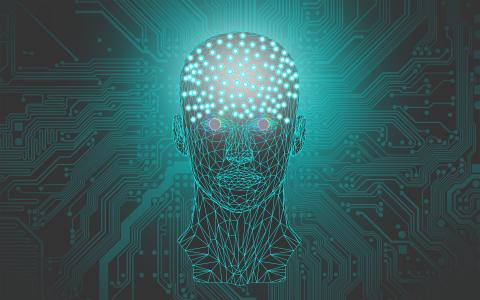
(Yahoo!Finance) - Advances in artificial intelligence (AI) will unlock a long-term productivity miracle, says Nouriel Roubini, the often gloomy professor and economist known as "Dr. Doom."
"There is a lot of talk about technological innovation, AI, machine learning, robotics, automation, cloud computing, and quantum computing, and you name it. But we don't see that in the aggregate productivity number. Productivity growth in the US has been barely 1%, slightly lower. In 10 years, are we going to see a significant increase in productivity? I'm quite optimistic. I'm a productivity optimist and a technology optimist," Roubini told Yahoo Finance Live (video above).
This week alone brought two examples of generative AI's potential for economic output.
First, a new McKinsey study identified 63 generative AI use cases spanning 16 business functions that could unleash $2.6 trillion to $4.4 trillion in economic benefits annually.
The same study found that generative AI could perform each of more than 2,100 detailed work activities such as communicating with others about operational plans.
"Generative AI has the potential to change the anatomy of work, augmenting the capabilities of individual workers by automating some of their individual activities. Current generative AI and other technologies have the potential to automate work activities that absorb 60 to 70 percent of employees’ time today," McKinsey's researchers noted.
Meanwhile, software giant Salesforce (CRM) took the wraps off its new GPT enterprise products designed to boost worker productivity. The company introduced "AI Cloud" at a New York City investor day. Salesforce says its AI Cloud product will allow marketers to auto-generate personalized content for customers and developers to auto-generate code, among other use cases. Salesforce employees also showed off coming AI functions in the workplace collaboration platform Slack. Most of Salesforce's new AI suite will begin rolling out in the coming months.
"We've seen a lot of exciting waves of technology in our industry — the cloud, social, mobile — but this AI wave is going be the biggest that anyone has ever seen," Salesforce co-founder, chairman, and CEO Marc Benioff told Yahoo Finance Live.
Despite AI's promising positive impact on the economy, Roubini and other experts do warn about the drawbacks.
"I think there are meaningful lags [on AI's impact]. And the idea there will be a surge in economic growth in the next two or three years because of AI and technology to me seems to be sort of farfetched," Roubini said. "In the medium long term, technology is going to be deflationary. But we might be facing a decade of stagflation before we see the bright light of technology and AI increasing growth and reducing inflation."
Goldman Sachs estimated recently that generative AI could expose the equivalent of 300 million jobs globally to automation over the next decade. That's a nice way of saying a person may lose their job to a robot.
But to Roubini's point, Goldman notes US labor productivity will grow by 1.5% over a 10-year period following the widespread adoption of generative AI. AI could also eventually increase the annual global Gross Domestic Product (GDP) by 7%.
By Brian Sozzi · Executive Editor



